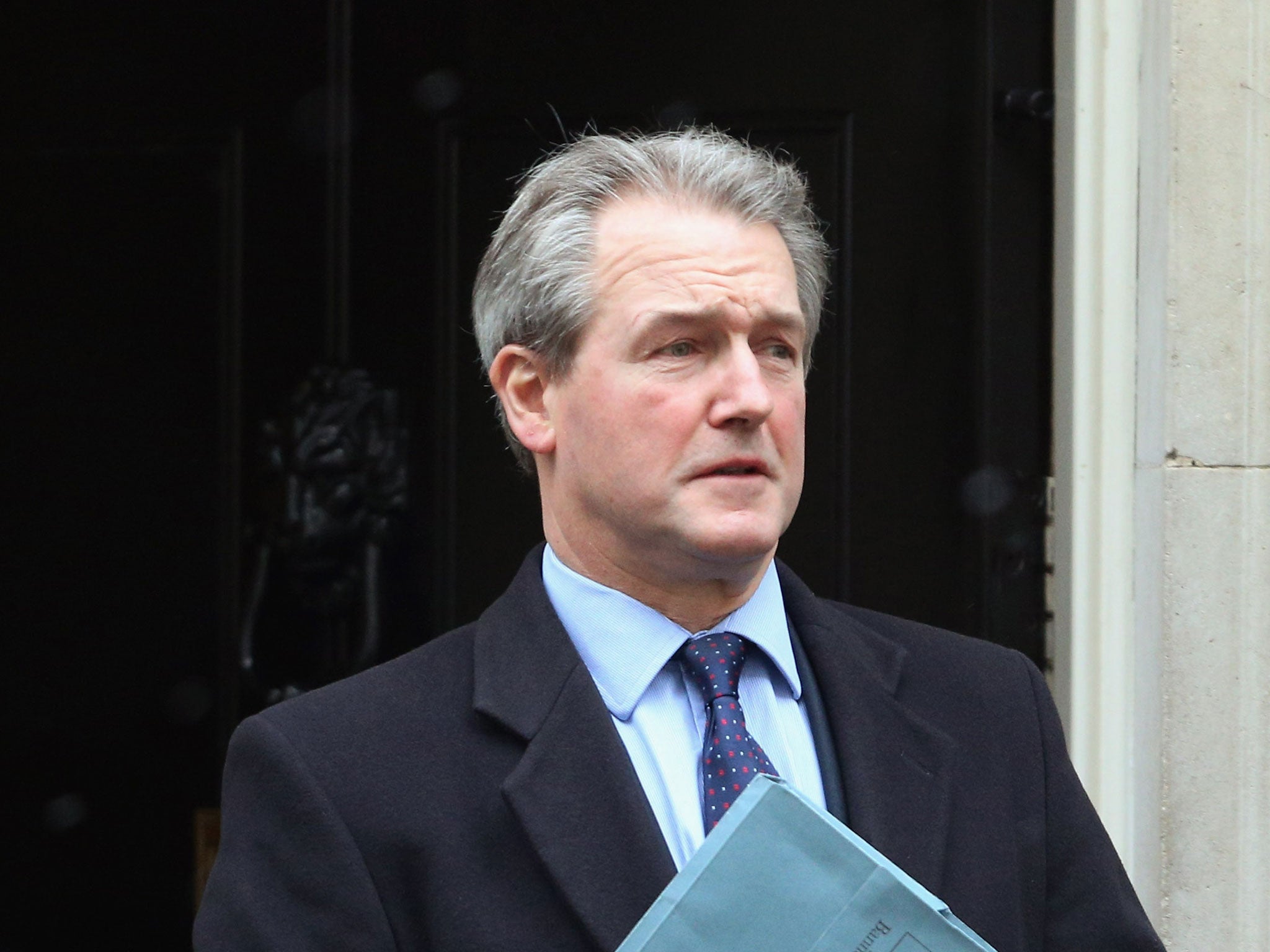Environment Secretary Owen Paterson urged to come clean on how cuts will hit UK's flood defences
Around 1,700 staff cuts loom even as environment department struggles to cope with flood defences

The Environment Secretary Owen Paterson came under renewed pressure yesterday after MPs demanded that he tackle low staff morale in his department and come clean about how government budget cuts will impact Britain's ability to withstand floods and deal with other environmental issues.
As storms continued to wreak havoc on Britain yesterday, with huge waves as high as 8m in Land's End, Cornwall, battering the southern coast. Some 250 people were evacuated from seafront flats in Aberystwyth, while the Environment Agency warned communities in Dorset, Oxfordshire, south Wiltshire, Hampshire and along the Thames to "remain prepared" for more flooding for the rest of the week.
And with climate change widely expected to increase the frequency and ferocity of such storms in the future - the committee reserved its chief criticism for cuts to the flood budget.
Anne McIntosh, the Conservative MP who chairs the committee, said: "Recent flooding over the Christmas and New Year period reinforce the Committee's concerns about cuts to the Defra budget and how these will be realised."
"The Secretary of State needs to be clearer about what substantial cuts in Defra's budget will mean for policy delivery... There needs to be a greater sense of urgency about these issues. Senior officials in the Department must take steps to manage the changes arising from the savings so that staff morale and engagement improves," she added.
The committee noted "an increased lack of confidence in the management and leadership of the department" and found that morale was among the lowest of any government department. The so-called engagement index - a key measure of morale - came in at just 50 per cent in 2012, compared to an average of 58 per cent and two per cent down on the previous year.
Furthermore, barely a fifth of Defra's staff believed its management had a "clear vision for the future" - just over half the civil service average - and 19 per cent that the department manages change well - compared to an average of 29 per cent.
"The Department must find ways to prevent a repeat of those poor staff results. We invite it to set out specific plans in its response to this report on how it will address low morale and lack of confidence in the management of the department," the report said.
Defra's budget has already fallen from £3 billion in 2010 to £2.5 billion last year and is due to drop by a further £300 million in the next two years. Some of the cut will be funded through redundancies, including about 1,700, or 15 per cent, at its Environment Agency subsidiary. Of these, about 550 jobs will be lost among staff dealing with floods.
The committee also invited the government "to set out why the first year of [badger cull] pilots failed to achieve the target figure in the allotted time and what changes are required in order for the planned future culls to be effective".
Furthermore, it called on the government to look more fully into the benefits and consequences of biodiversity offsetting before proceeding with its plan to roll out the policy more widely across the country.
In a statement yesterday, Mr Paterson expressed his sympathy to the families of the seven people who have died and the 1,700 homes that have been in the past fortnight as a result of the storms. He praised the response of the Environment Agency, local councils and the transport and energy companies. However, he said "the response of a few left room for improvement" - in a comment seen as directed primarily at UK Power Networks, the electricity distribution company which owns power lines across London, the south east and eastern England, which was slow to restore energy to thousands of its customers over Christmas after they lost it in the storms.
Mr Paterson said Ed Davey, the Secretary of State for Energy and Climate Change, would meet with Distribution Network Operators and Ofgem, the regulator, "to discuss how response can be improved for future events".
A Defra spokesperson said: " The EFRA report is based on the 2012 staff survey, which was conducted during a period of significant restructuring. Results from the 2013 People Survey which ran last October shows a positive improvement. We will publish the results by the end of January."
"We're currently spending over £2.3 billion on tackling the risk of flooding and coastal erosion. Together with contributions from other partners, this is more money than ever before. We’ll also be making record levels of capital investment and will be spending over £400m by 2020/21."
Subscribe to Independent Premium to bookmark this article
Want to bookmark your favourite articles and stories to read or reference later? Start your Independent Premium subscription today.

Join our commenting forum
Join thought-provoking conversations, follow other Independent readers and see their replies